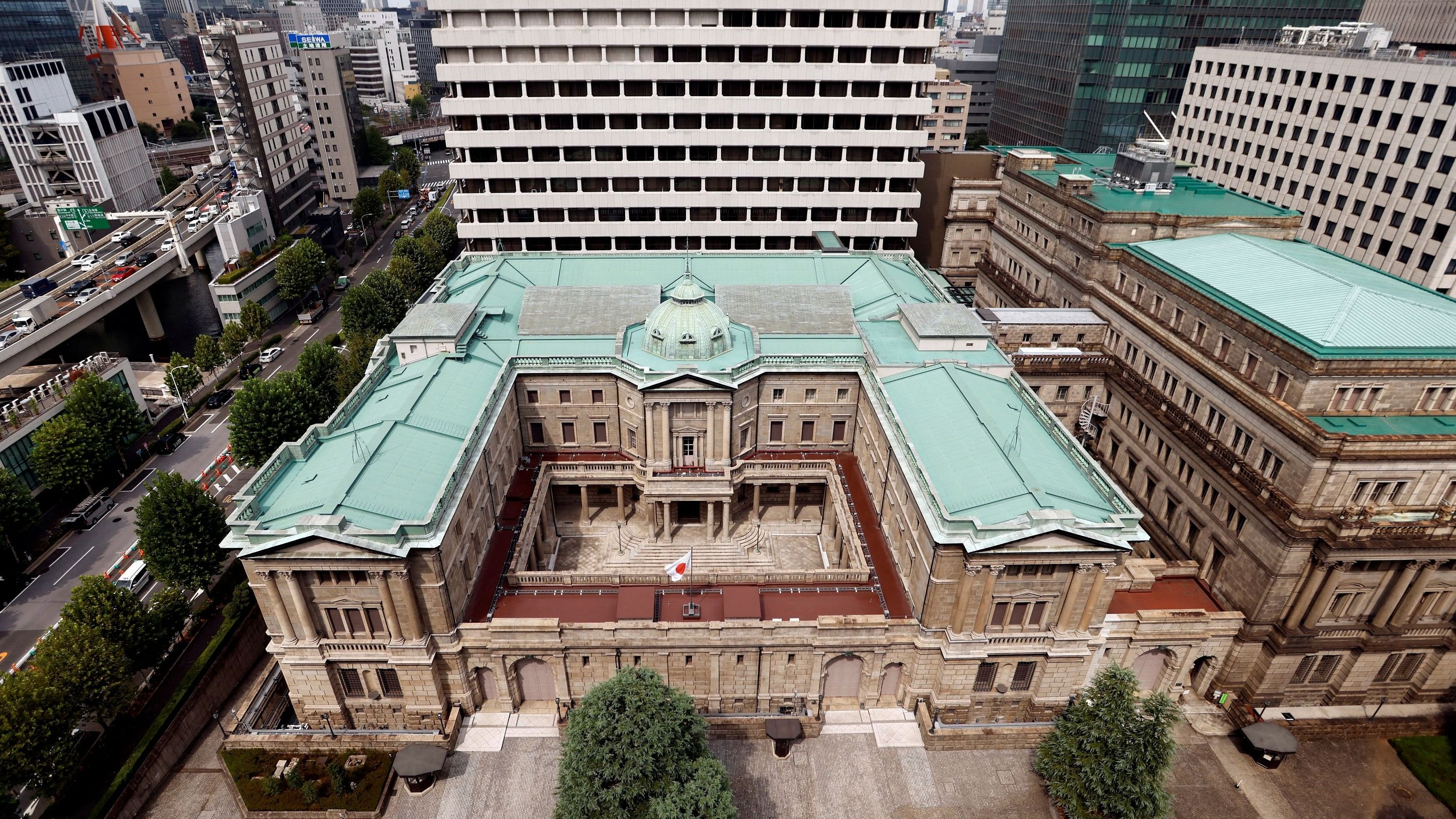
Japanese national flag is hoisted atop the headquarters of Bank of Japan in Tokyo, Japan.
Credit: Reuters Photo
Tokyo: Japan's rising minimum wage is likely to push up inflation mainly through higher services prices, the central bank said on Friday, signalling confidence over prospects that inflation will sustainably hit its 2 per cent inflation target.
Sustained, broadening wage increases are among prerequisites the Bank of Japan has set in raising interest rates from current near-zero levels.
The average minimum wage is set to rise a record 5.1 per cent in the fiscal year to end-March 2025, with the increase particularly large for areas where the level was kept low, the BOJ said in a full version of its quarterly outlook report.
"If Japan's minimum wage continues to rise, that is likely to push up prices mainly for services," it said.
Estimates showed that a 1 per cent rise in the minimum wage would push up services prices, as measured by the consumer price index, by 0.07 percentage point, the BOJ said in the report.
An analysis of Japan's gross domestic product (GDP) deflator, which measures changes in the prices of goods and services, also showed the key driver of inflation has shifted to unit labour costs from unit profits since 2024, it said.
The findings suggest Japan's inflation is becoming driven more by rising labour costs than by the pass-through of higher raw material costs.
The BOJ ended negative interest rates in March and raised short-term rates to 0.25 per cent in July on the view Japan was making progress toward sustainably achieving its 2 per cent inflation target.
BOJ Governor Kazuo Ueda has said rising inflation must be driven by robust domestic demand and solid wage growth in order for the central bank to keep hiking interest rates.
With rising living costs squeezing households, Prime Minister Shigeru Ishiba's Liberal Democratic Party has pledged to raise the average minimum wage by 42 per cent to 1,500 yen per hour by the end of the decade.
While an intensifying labour shortage has led to bumper pay hikes in this year's wage negotiations with unions, there is uncertainty on whether firms will keep raising pay as slowing global growth weigh on profits.
Japan's economy is expected to have slowed sharply in the third quarter as cooling global demand and the high cost of living drag on exports and consumption, according to a Reuters poll.
Core consumer inflation hit 2.4 per cent in September to exceed the BOJ's 2 per cent target for well over two years, though many analysts say the increase continues to be driven more by rising raw material costs than wage pressures.